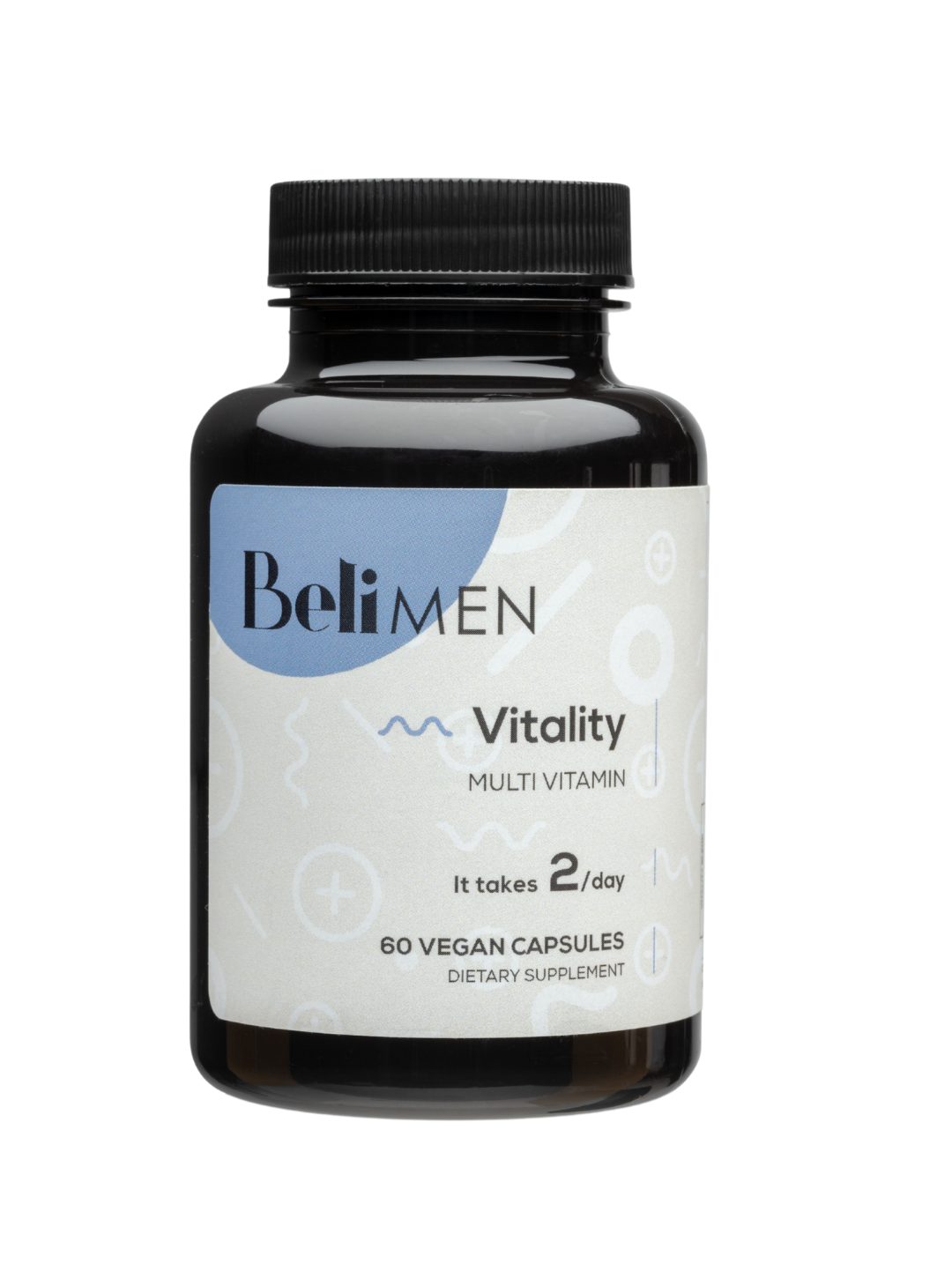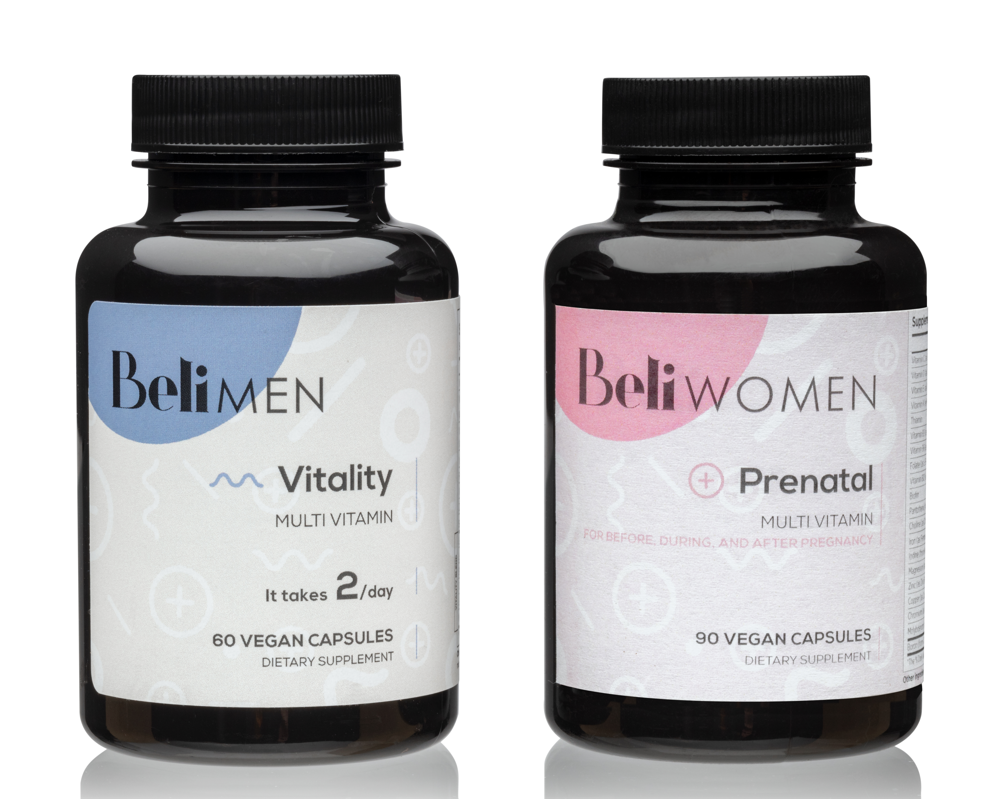As fall brings cooler temperatures and a shift in seasonal habits, it's also the perfect time to focus on optimizing fertility, especially sperm health. While much of the fertility conversation centers on women, men play an equally critical role, and healthy sperm is key to conception. Cooler weather naturally provides a number of benefits for sperm production, offering men a unique opportunity to enhance their fertility.
The Impact of Cooler Weather on Sperm Health
Temperature plays a significant role in sperm production. Sperm thrive when the testes are kept cooler than the rest of the body—about 2-4°C lower. When the temperature is too high, sperm production slows down and can result in lower sperm count and reduced motility. Studies show that men experience better sperm quality during cooler seasons, with research from Human Reproduction indicating that sperm concentration and motility increase by up to 24% in the fall and winter months compared to summer.
Cooler weather, therefore, gives the body a natural advantage when it comes to producing healthy sperm. Heat from excessive sun exposure, tight clothing, and other factors is no longer a concern, which allows sperm to develop in a more favorable environment. This makes fall an ideal time for men to focus on boosting their fertility.
Why Sperm Health Improves in Cooler Weather
-
Avoidance of Overheating:
Prolonged exposure to heat, whether through hot baths, saunas, or warm environments, is known to negatively affect sperm health. A study in Fertility and Sterility found that excessive heat can reduce sperm count by up to 40%. With the arrival of cooler weather, it’s easier to avoid overheating, creating optimal conditions for sperm development. -
Higher Testosterone Levels:
Hormonal changes also occur with the seasons, and testosterone—a key hormone in sperm production—tends to peak in fall and winter. Research in Chronobiology International has shown that testosterone levels in men are on average 16% higher in the fall than during warmer months, leading to improved sperm production and overall reproductive health. -
Reduced Oxidative Stress:
Heat not only impacts sperm directly but also increases oxidative stress, which can damage sperm cells. Cooler weather, along with a diet rich in antioxidants, can help reduce oxidative stress, protecting sperm from DNA damage and supporting fertility.
Boosting Sperm Health This Fall with Beli for Men
While fall provides natural benefits for sperm health, adding a targeted supplement like Beli for Men can help take these fertility advantages to the next level. Beli for Men is designed specifically to support male reproductive health by providing the essential nutrients needed for sperm production, quality, and overall fertility.
Here’s how Beli for Men can further support sperm health during the cooler months:
-
Key Nutrients for Sperm Development
Beli for Men contains vital nutrients such as CoQ10, Vitamin C, and Zinc, all of which play crucial roles in boosting sperm count, improving motility, and protecting against oxidative stress. -
Antioxidant Support
Antioxidants are crucial for protecting sperm cells from damage, especially during the cooler months when the body experiences reduced sunlight exposure and potential drops in immune function. Beli for Men is rich in antioxidants that help neutralize free radicals, reducing oxidative stress and improving sperm quality. -
Boosting Testosterone Naturally
Testosterone levels are higher in cooler months, but Beli for Men further helps support healthy testosterone and other key male feritlity hormone levels. -
Supporting Overall Male Fertility
Beli for Men goes beyond just improving sperm count and motility. It also addresses overall male fertility by supporting energy levels, immunity, and reproductive function, helping men ensure they are in their best shape to conceive. Ingredients like L-Carnitine are known to improve sperm morphology, helping sperm cells develop correctly and improve their chances of fertilizing an egg.
Fertility-Friendly Lifestyle Tips for Fall
In addition to taking Beli for Men, here are some lifestyle tips to further boost sperm health during the fall:
-
Stay Active Outdoors
Cooler temperatures make it easier to engage in moderate outdoor activities like hiking, cycling, or walking without overheating. Regular exercise improves circulation, balances hormones, and supports overall fertility. Studies show that men who exercise regularly have better sperm motility and morphology. -
Wear Loose, Breathable Clothing
While fall may call for cozy layers, it’s important to ensure that your groin area stays cool. Opt for loose-fitting clothes and breathable fabrics like cotton to keep temperatures low and promote healthy sperm production. -
Eat a Fertility-Boosting Diet
Fall is full of nutrient-dense, antioxidant-rich foods that are great for fertility. Load up on seasonal produce like pumpkins, leafy greens, and root vegetables, all of which provide essential vitamins and minerals that support sperm health. Pomegranates, which are high in antioxidants, are especially helpful in protecting sperm from oxidative stress. -
Manage Stress and Get Plenty of Sleep
Fall often comes with the stress of holiday preparations, but stress can negatively impact sperm quality. Practice stress-management techniques such as meditation, yoga, or mindfulness. Also, make sure to get at least 7-8 hours of sleep per night, as sleep deprivation can lower sperm count and quality.
Fall is not just a time for pumpkin spice lattes and cooler weather; it’s also an opportunity to optimize fertility, particularly for men. Cooler temperatures naturally benefit sperm health, while Beli for Men provides the essential nutrients needed to take those benefits even further. By following the right lifestyle habits and incorporating Beli for Men into your routine, you can enhance sperm health and boost your chances of conception this fall.
Taking care of sperm health in the cooler months is a smart strategy for men looking to improve their fertility—both naturally and with the support of supplements designed for reproductive health.




